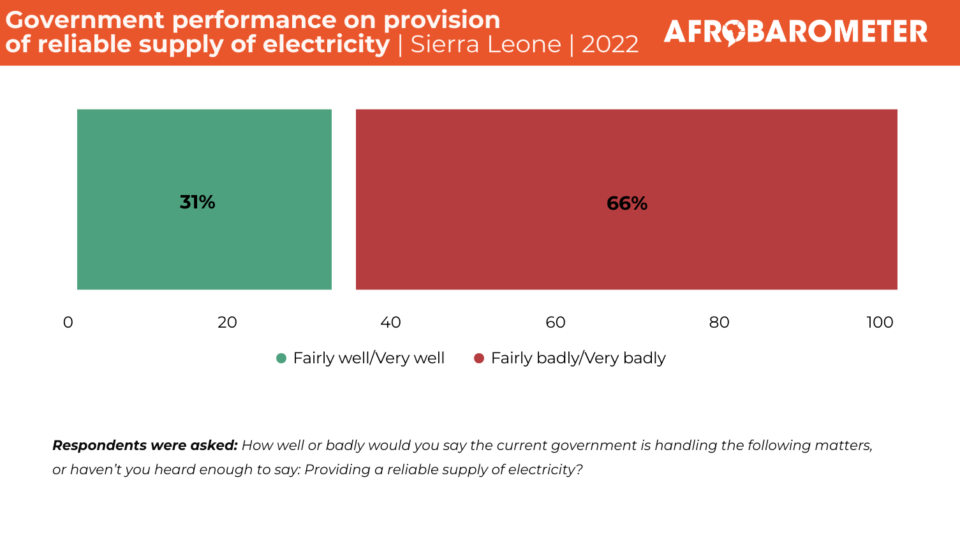Only about one in 10 Sierra Leoneans enjoy reliable electricity service from the national grid, and most citizens say the government is doing a poor job of addressing the problem, according to the most recent Afrobarometer survey.
One-third of survey respondents say they are connected to the national grid, and far fewer – including just one in 100 rural residents – report that they have electricity that works most or all of the time.
Sierra Leoneans have experienced frequent nationwide power outages in recent weeks, affecting even the provision of medical care at hospitals and clinics, as the government grapples with its long-standing difficulties in providing affordable and reliable electricity to its citizens.
Key findings
- Only three in 10 Sierra Leoneans (31%) say their homes have an electric connection from the Electricity Distribution and Supply Agency (EDSA) (Figure 1).
- Only 11% of all respondents say they have electricity service that works “most of the time” or “all of the time.” After tripling between 2015 and 2018, the share of households who report reliable access to electricity dropped by 10 percentage points between 2020 and 2022 (Figure 2).
- The situation is even worse for rural households: Only 1% of rural residents say they have reliable electricity (Figure 3).
- Fewer than one in three Sierra Leoneans (31%) approve of the government’s handling of electricity provision, while 66% say it is performing “fairly badly” or “very badly” on the issue (Figure 4).
Afrobarometer surveys
Afrobarometer is a pan-African, non-partisan survey research network that provides reliable data on African experiences and evaluations of democracy, governance, and quality of life. Nine survey rounds in up to 42 countries have been completed since 1999. Round 9 surveys (2021/2023) cover 39 countries.
The Afrobarometer team in Sierra Leone, led by the Institute for Governance Reform (IGR), interviewed 1,200 adult citizens of Sierra Leone between 13 June and 9 July 2022. A sample of this size yields country-level results with a margin of error of +/-3 percentage points at a 95% confidence level. Previous surveys were conducted in Sierra Leone in 2012, 2015, 2018, and 2020.

